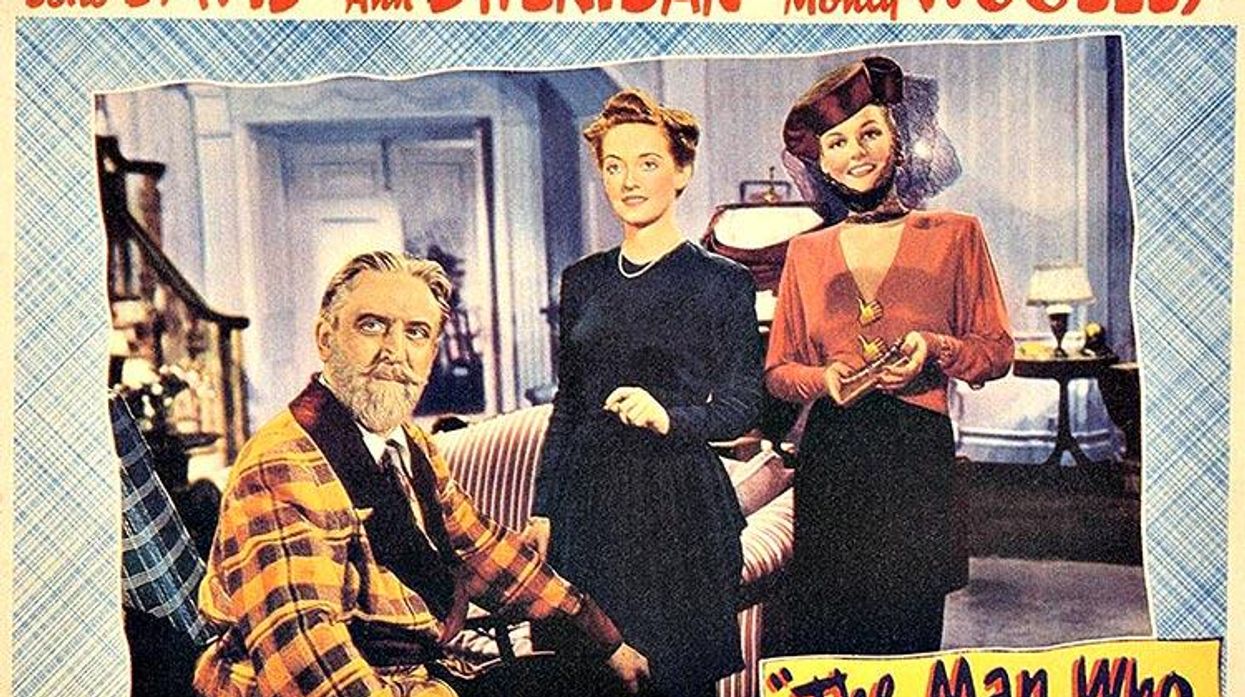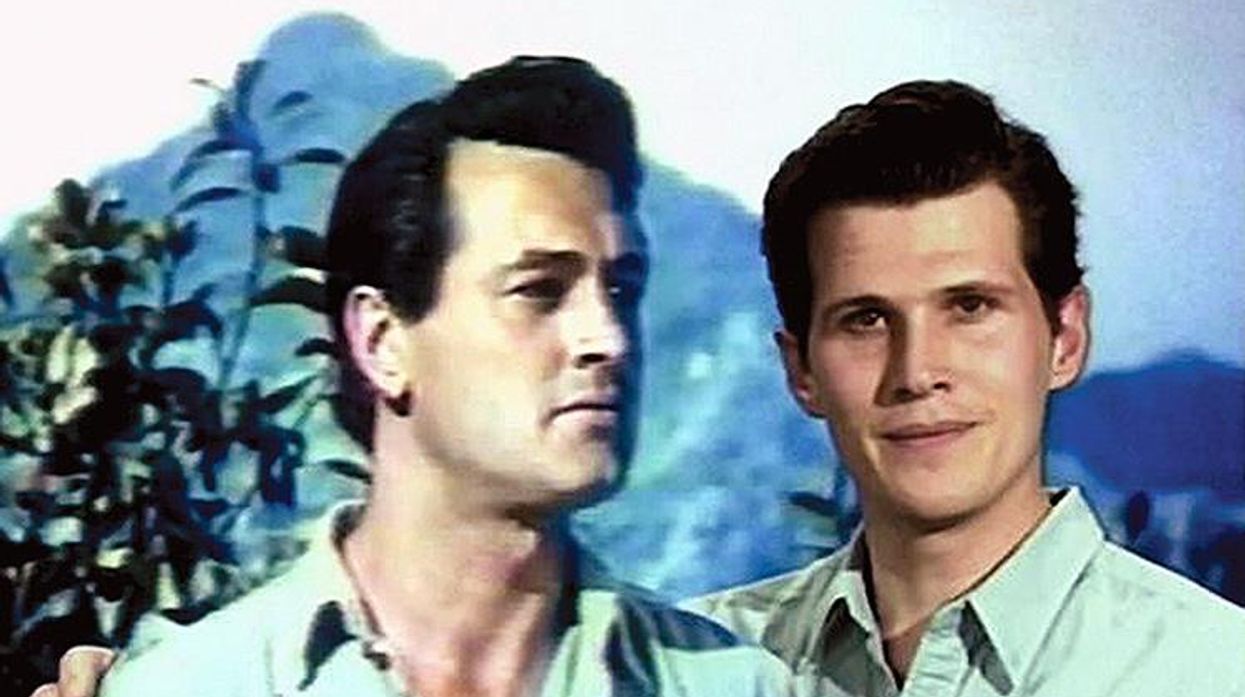All-American identity politics might be the key to understanding how the Depression-era-set comedy The Man Who Came to Dinner, about a temperamental gay man, became a landmark Hollywood film. The title character, Sheridan Whiteside, is a celebrated New York radio personality whose snobbish taste and barbed tongue make him a forbidding figure among the swells of the New York theater world.
In a memorable performance that defined the career of burly, bearded gay actor Monty Woolley (his beard providing a dandyish touch rather than bearish virility), Whiteside offers a variation on the sexual social outcast: During a cross-country promotional tour, a mishap leaves the pundit stranded in Middle America as the convalescing guest in a middle-class Ohio home. He immediately takes over the place with his grand, majestic, queenly -- if gruff -- demeanor. "He's the world's rudest man, isn't he?" one character wonders. Whiteside turns every observer into an awed subject, the movie's audience included.
On its surface, The Man Who Came to Dinner is a comedy of manners written by the successful team of George S. Kaufman and Moss Hart as a parody of their friend, theater critic Alexander Woollcott, one of the legendary wits of the Algonquin Round Table. Yet the play's contrast between urban sophistication and small-town quaintness has always struck viewers as fresh and relatable. The 1942 Warner Brothers film adaptation, in which Woolley reprised his role from the 1939 Broadway production, was directed with such verbal and visual verve by William Keighley, that the play became a popular, regularly performed choice for mid-20th-century high school stage productions.
Related | Gay Performances the Oscars Forgot
This forgotten cultural phenomenon helped normalize the gay outsider figure; it proved a special kind of identity politics, different from our modern approach to defending the rights and well-being of LGBTQ people. The title alone became classic, suggesting an interloper claiming his space in the family hearth -- one who upsets convention but then is accepted through the avuncular force of his unique character.
The originality of Woolley's commanding, erudite, confirmed bachelor -- he's the greatest "funny uncle" of all time -- lies in his subtle familiarity. Middle America's politely unspoken recognition of Whiteside's individuality tests the country's social generosity. Whiteside doesn't simply stick to a queer's sexless place in a heterosexual environment -- he keeps pushing the boundaries of his behavior.
His continuous interruption of middle-class routines is radical. When he's visited by brash, flashy, vain outsiders from the world of show business, the shocked inhabitants of the small town -- and the symbolically cramped house -- open up. (In a subplot, he also interferes with the timid, conventional plans of Ohioans and their next generation.)
Whiteside is not a pious gay hero. Rather his uncanny gift for throwing shade and reading the obtuse may be the secret to his eternal charm. He shows a knack for undermining vapidity and insincerity. Responding to a female nurse's massage, he snipes, "You have the touch of a love-starved cobra!"
Bette Davis, playing Whiteside's secretary, reads him back: "Don't pull any of your tricks on me, because I'm on to every one of them. Lay off me, big Lord Fauntleroy."
True to her own camp genius, Davis gets to Whiteside's core. His character is a catalyst, not so much for social change as for expanding minds and shaking up social tradition. He's groundbreaking as a gay archetype in American culture, but he's also a rascal.
Woolley's impeccably dry, hilarious portrayal was thoroughly domesticated two years later in Since You Went Away, which won him a second Oscar nomination. His first, for the World War II movie The Pied Piper, also from 1942, reveals a preference for sentimentality over Whiteside's acerbity. But Whiteside is the character who has lasted.






























